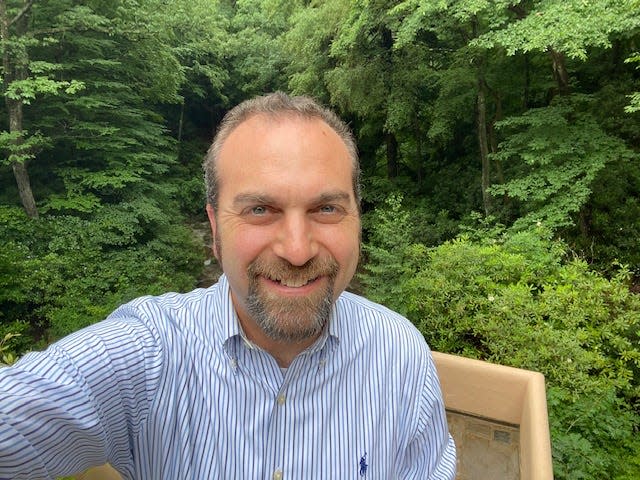Keeping the faith: Jewish High Holidays almost here but important work can’t wait

As the secular calendar switches to September this week, I admit that my rabbinic eye is more trained on the Jewish calendar as it changes today from the month of Av to the final month of the Jewish calendar year, Elul.
What that means practically speaking is that four weeks from this evening, the festival of Rosh Hashanah ushers in the new year of 5783. In Jewish tradition, this time of year is one of self-reflection and contemplation as we consider the choices we have made in the past year, how we can improve on them in the year to come and ask forgiveness from those we have wronged.
This time of year also brings about a common response, not only from rabbis, to many questions and requests: “Let’s wait until after the holidays.”
To be clear, I am fully aware that this is hardly a unique phenomenon. How often is a question asked in early December met with a response of "Let's wait until after Christmas" or "Ask me again after January 1"?
But it is worth noting that the “holidays” on the Jewish calendar is no small endeavor. The Jewish New Year is literally and figuratively just the beginning as the Jewish fall holiday season lasts for 23 days.
It starts with the New Year and is followed by Yom Kippur, the Day of Atonement on the 10th day of the year. Day 15 ushers in the Festival of Booths, known as Sukkot, which lasts for seven days. Two more days of festival make up days 22 and 23.
It is exhilarating and exhausting. It also means that saying “Let’s wait until after the holidays” is much more than just waiting a week or two.
As a regular user of this response, I will rise to say that it is often justified in its use. The weeks leading up to the High Holidays and the festivals that follow are the busiest and most pressurized weeks of the Jewish year. The spiritual work of standing before God and asking for forgiveness for mistakes we have made in the past year should take precedence over other matters.
Preparations for these moments, both individual and communal, appropriately take priority over other conversations that do need to wait until after the holidays. No doubt clergy of other faiths appropriately say something similar in the days and weeks leading up to Easter or the month of Ramadan.
And yet it is easy to slip into the mode of using it as an excuse. It becomes easy to avoid a problem by saying “Let’s deal with it after the holidays” only to find that waiting those weeks only made the issue more complicated and more serious.
This goes beyond the classic waiting to start a diet until after the holidays and is actually the opposite of what this time of year is meant to be about.
Personal matters, family matters, resolution with coworkers, taking the first step on a journey that will improve your life – these are not meant to ever wait until after the holidays. Self-care and caring for other people starts every day anew and waits for no one.
We all, no matter our religion and background, have a responsibility to make sure that those in our community who need assistance get that help as soon as possible. Quite often, those in need are others, but it also happens that we ourselves are the ones in need of care. Whomever it is, waiting is not an option.
Without question, over the next four weeks “Let’s wait until after the holidays” will be a common phrase to escape my lips. But I invite you to join me in not overusing the phrase. There is much important work to be done in this city and in our world. And frankly, it cannot wait until after the holidays.
Rabbi Hillel Skolnik is senior rabbi at Congregation Tifereth Israel on the East Side.
Keeping the Faith is a column featuring the perspectives of a variety of faith leaders from the Columbus area.
This article originally appeared on The Columbus Dispatch: Column: Jewish High Holidays almost here but important work can’t wait

